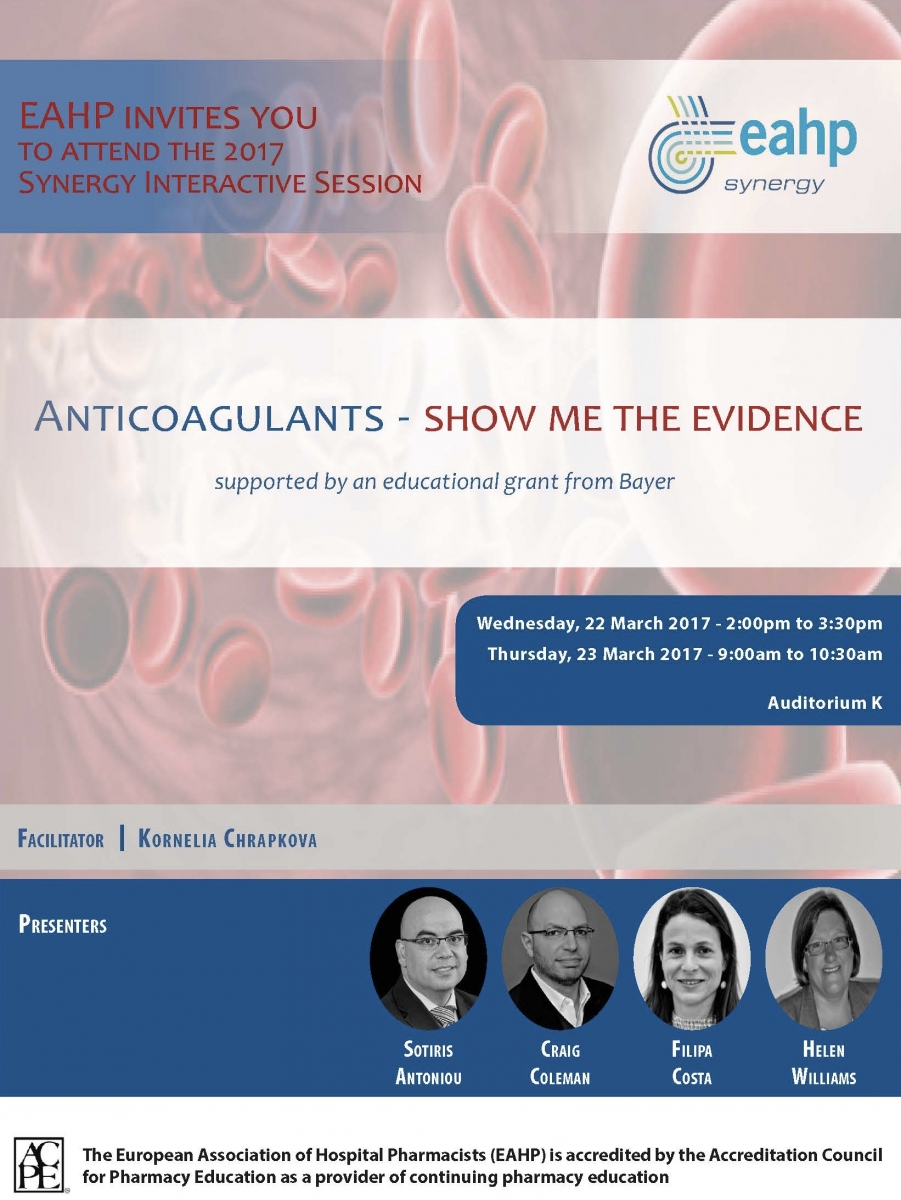Linked to EAHP Statements:
Section 4: clinical pharmacy services
ACPE UAN: 0475-0000-17-005-L04-P. An application based activity.
Abstract

Optimal oral anticoagulant therapy requires careful consideration of patient’s needs and an understanding of the efficacy, safety, pharmacokinetics of the anticoagulants and the methods used to measure their effects. Warfarin, a vitamin K antagonist, has been the mainstay of oral anticoagulation therapy for over several decades. However, warfarin is associated with a number of difficulties, including the need for constant INR monitoring, dosing adjustments, dietary restrictions and clinically significant drug interactions. Finding an alternative to warfarin has been a focus of recent research. The newer oral anticoagulants that inhibit factor IIa or factor Xa have more predictable pharmacokinetics, fewer drug and diet interactions and no need for routine laboratory monitoring and dose adjustments. Adherence is especially important with these new anticoagulants because they have relatively short half-lives. The pharmacist has a significant role in keeping updated with these new anticoagulant drugs, educating patients about their drugs and the importance of adhering to their anticoagulant therapy.
Learning Objectives
After the seminar, the participant should be able to:
- explain the complications of anticoagulation therapy;
- review the differences in pharmacokinetics, efficacy, safety between newer anticoagulant drugs and warfarin;
- apply the important patient counselling points.
Keywords: oral anticoagulants, adherence, monitoring, counselling.
* Indicates speaker or SC member has stated a conflict of interest which has been reviewed and accepted. See speakers’ bios page for more information.



























